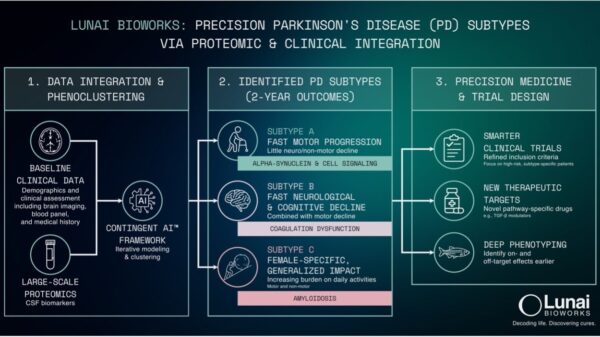UPDATE: On September 17, 1999, the world of gene therapy faced a devastating setback when Jesse Gelsinger, an 18-year-old from Philadelphia, died during a clinical trial at the University of Pennsylvania. His tragic death, attributed to a severe immune reaction to experimental treatment, sent shockwaves through the medical community and halted gene therapy advancements for nearly a decade.
Gelsinger was participating in a trial aimed at correcting his ornithine transcarbamylase (OTC) deficiency, a genetic disorder affecting about 1 in 40,000 newborns. Despite his milder condition, which he managed through a strict low-protein diet and 50 pills a day, Gelsinger sought to help others by enrolling in the groundbreaking study.
On September 13, 1999, he received the gene therapy, which used a weakened adenovirus to deliver a corrected gene into his liver cells. Initial symptoms were mild, but within 24 hours, Gelsinger’s health deteriorated rapidly, leading to organ failure. He was taken off life support at approximately 2:30 p.m. on September 17, marking a tragic turning point in gene therapy research.
An investigation by the FDA revealed critical failures in Gelsinger’s trial enrollment process, including undisclosed serious side effects experienced by other participants and inadequate screening of his liver function. The lead investigator, Dr. James Wilson, faced scrutiny due to financial ties to the therapy’s developer, raising ethical concerns.
In the wake of this tragedy, the FDA imposed stricter regulations on gene therapy trials, including enhanced informed consent procedures and increased monitoring standards. Gelsinger’s father, Paul Gelsinger, pursued a wrongful-death lawsuit that was eventually settled for an undisclosed amount, estimated at around $2.4 million.
This incident had a chilling effect on funding and public trust in gene therapy, resulting in significant delays in research and development. However, advances in the field resumed over the last decade, particularly with the introduction of the revolutionary gene-editing tool, CRISPR.
Today, scientists have successfully utilized gene therapy to treat various genetic disorders, including severe combined immune deficiency and multiple forms of blindness. In January 2024, the first CRISPR-based gene therapy for sickle cell anemia was approved, with ongoing developments showcasing the potential of customized treatments.
In a remarkable turn of events, researchers reported in 2025 that they had used a tailored CRISPR approach to treat a baby suffering from a rare genetic syndrome, demonstrating the evolution of gene therapy since Gelsinger’s death.
As the field continues to evolve, the number of approved gene therapy products remains limited, primarily focusing on treatments that modify cells outside the body before reintroducing them. However, the progress made since Gelsinger’s tragic fate underscores a renewed commitment to safely harnessing the power of gene therapy.
The legacy of Jesse Gelsinger continues to resonate in the ongoing dialogue about ethics and safety in biomedical research. As scientists push forward, the story of Gelsinger serves as a poignant reminder of the human impact behind medical advancements.
For those interested in the latest developments in gene therapy, the advancements in clinical trials and ethical oversight are crucial to watch, as the field strives to prevent past mistakes from being repeated.







































































